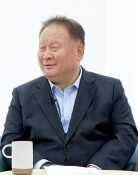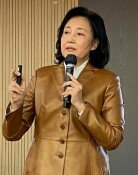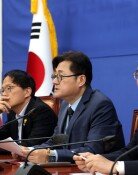Government employees’ high union organization rate
Government employees’ high union organization rate
Posted December. 08, 2017 09:07,
Updated December. 08, 2017 09:40
According to labor union statistics released on Thursday by the Ministry of Labor and Employment, public servants’ union organization rate stands at 67.6 percent, about seven times higher than the private sector average of 9.1 percent. It means that six to seven of 10 public servants eligible for labor union membership are union members. The public servants, whose job security is guaranteed until retirement age and who do not have to worry about their employer going bankrupt or becoming unable to pay their salaries, have another layer of protection -- strong backing from their labor union.
It is true that the public servants’ unions do not have the right to collective action because their employers are the people. While the Korean Government Employees' Union (KGEU) cannot go on strike, however, it has been involved in all kinds of illegal labor activities as a branch of the umbrella Korean Confederation of Labor Unions (KCTU). Since the KGEU’s launch in 2002, 2,986 government employees received disciplinary actions, including expulsions, dismissals and exclusion from public offices, in connection with their union activities, indicating the KGEU’s militancy. It made a habit of violating its duty of maintaining political neutrality by publicly supporting the Korean Teachers and Education Workers Union’s anti-government declarations, participated in anti-U.S. beef protests, and joined the military KCTU. This year alone, the KGEU raised its voice on political issues by opposing U.S. President Donald Trump’s visit to Seoul, calling for the withdrawal of the Terminal High Altitude Area Defense anti-missile system, and demand the launch of a new special committee for investigation into the Sewol ferry disaster.
In addition, the KGEU got involved in social consensus building organizations as an interested party, hampering the reform of government employees’ pension system and thwarted a public hearing on the pension reform. As a result, the reform cut the benefits of newly hired government employees while leaving the pensions for the existing ones intact. The union has recently demanded that government employees be allowed to make political donations to political parties they support. Allowing public servants to have political party membership or get involved in political activities require the abolishment of a law on their political neutrality. After all, the government employees who receives taxpayers’ money for their salaries and pensions demand the same level of rights as civilians.
The passage of the 2018 budget, which calls for increasing public servants employed by the central government by 9,475, and local autonomous governments’ plans to hire a total of 15,000 more employees would add up to an increase of a combined 24,475 government employees, the largest in 12 years. While the increase would be a Christmas present for many people preparing for examinations for government employees, it would be the people who have foot the bill for their lifetime employment. The government workers’ higher union organization rate proves that public servants care more about their own welfare than about that of the people and the nation. No wonder that many people complain that Korea is a country for government employees.







